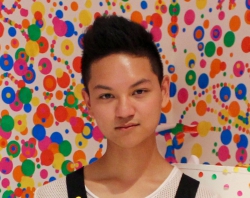Jul
1
2015

Written by Alex Nguyen
In its monumental decision this past Friday, the Supreme Court of the United States ruled in a 5-4 decision that same-sex marriage is a legal right protected by the Constitution. The Obergefell v. Hodges ruling effectively reverses bans on same-sex marriages in states where these laws have been enacted while also fully legalizing these unions throughout the nation and fully protecting them under the Fourteenth Amendment. With a majority of Americans supporting same-sex marriage and publicly vocalizing their support for this decision, a historic and inspiring victory was truly made. A battle was surely won, but the war is not over.
As a millennial and a queer person of color myself, I’m obviously happy with the outcome of last Friday. Knowing that I have the right to marry who I choose—if I choose to—and that this right is protected by law is something worth celebrating. However, ensuring the freedom to marry for all is only one step towards true equality, and we must not stop here. I’m happy, but that doesn’t mean I can’t also continue to be outraged by the other forms of oppression that the right to marry doesn’t address. Marriage equality does not ensure that I will not be discriminated against in the workplace, or that my trans friends will not have to fear being harassed, beaten, or killed in public spaces for simply existing. And that’s why we must keep fighting.
Even if the popular support for marriage equality signals a change in attitudes towards recognizing the inherent worth of queer people, we must not forget that 40% of our nation’s homeless youth are queer youth, with nearly seven in ten stating that they faced family rejection and were either kicked out of their homes or ran away, according to this 2012 study by The Williams Institute. With more than half of these youths stating that “they experienced abuse in their family” on the basis of their sexual orientation or gender identity, no wonder the rates of depression, suicide, and other mental health issues are indisputably higher among queer youths than in their cisgender, heteronormative peers.
While marriage equality has been achieved under the Obama administration, Jennicet Gutiérrez brought attention to the plight of transgender immigrants last week when she spoke up and was consequently kicked out of the White House’s LGBT Pride celebration. Queer immigrants “face some of the worst violence” as they are “15 times more likely to be sexually assaulted” than their heteronormative counterparts and these assaults more than often go uninvestigated and neglected by unsympathetic private prison companies, according to this study from the Center for American Progress. Additionally, the study notes that LGBT inmates are often put into solitary confinement “in an attempt to protect them for the general population” when they are the ones facing abuse simply for being who they are.
I don’t mean to put a damper on the celebration of marriage equality. It’s quite the opposite, actually. I believe we should celebrate the progress we’ve made, but I also believe that we must also recognize that there is much more work to be done. If we are to call ourselves allies, advocates, activists, or members of a unified queer community, we must remain cognizant of the struggles that persist all around us. We must attack these issues at the intersections of race, class, ability, citizenship, gender, and sexuality.
One of BMP’s latest reports, The New Now, highlights how LGBT rights groups, reproductive rights groups, and immigrant rights groups in New Mexico have come together to form alliances where they “support each other’s campaigns based on a shared vision for justice and equity, rather than a transactional interest in future support for their own issues.” These groups have addressed their respective issues through intersectional lenses that have allowed them to support one another and continue to do positive work through their shared investments and goals. These approaches are exactly what organizations that have rallied and fought years for marriage equality must do now to continue the fight and to create true equality. Marriage advocates have won their battle, but they must continue to support the causes and organizations still fighting for LGBT rights if they are to really build on and extend their victory.
Recognizing the victories won while simultaneously being cognizant of the victories left to be had is imperative—the two are not mutually exclusive. Marriage equality is progress, but it is not the end goal. We must remain vigilant in our efforts to fund queer organizations and support the activists tirelessly working for full lived equality of LGBT people. Queer leaders of color also need support to develop the skills and capacity to advance their causes and organizations.
Marriage equality may be law, but queer people are still not equal. There are many among my generation—my friends and my peers—who don’t have the economic means and other supports needed to make it safely to adulthood. Until all queer people have the ability and support to live without fear of discrimination, homelessness, neglect, poverty, abuse, and death, we must keep fighting. Once all queer people get the chance to survive until the wedding cake, then true equality will be achieved. Let’s get back to work.
Alex Nguyen is a Research and Communications Intern at the Building Movement Project. He is currently a junior at Columbia University where he majors in Urban Studies.
